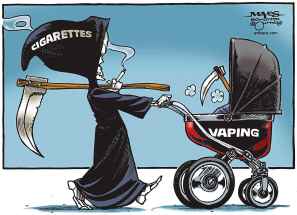Being in the black, doesn’t mean being out of the woods
Read this article for free:
or
Already have an account? Log in here »
To continue reading, please subscribe:
Monthly Digital Subscription
$0 for the first 4 weeks*
- Enjoy unlimited reading on winnipegfreepress.com
- Read the E-Edition, our digital replica newspaper
- Access News Break, our award-winning app
- Play interactive puzzles
*No charge for 4 weeks then price increases to the regular rate of $19.00 plus GST every four weeks. Offer available to new and qualified returning subscribers only. Cancel any time.
Monthly Digital Subscription
$4.75/week*
- Enjoy unlimited reading on winnipegfreepress.com
- Read the E-Edition, our digital replica newspaper
- Access News Break, our award-winning app
- Play interactive puzzles
*Billed as $19 plus GST every four weeks. Cancel any time.
To continue reading, please subscribe:
Add Free Press access to your Brandon Sun subscription for only an additional
$1 for the first 4 weeks*
*Your next subscription payment will increase by $1.00 and you will be charged $16.99 plus GST for four weeks. After four weeks, your payment will increase to $23.99 plus GST every four weeks.
Read unlimited articles for free today:
or
Already have an account? Log in here »
Hey there, time traveller!
This article was published 10/12/2019 (2195 days ago), so information in it may no longer be current.
The Pallister government may be planning to balance the books in two years. But it doesn’t mean the province will stop borrowing and racking up debt even after it’s in the black. That’s something Premier Brian Pallister alluded to in a year-end press conference Tuesday.
The idea that government still has to borrow money to pay the bills, even with a balanced budget, may sound counterintuitive. But if you look a little deeper into how the province reports its finances, it’s easy to see how the province will still have to borrow money years after it officially balances the books.
That may be disappointing to those who thought a balanced budget — now expected in 2022 — might allow the province to loosen the purse strings. But the way government accounting works, eliminating the deficit doesn’t necessarily mean the province no longer has borrowing requirements.

“We’re not out of the woods yet,” Pallister said Tuesday when talking about the province’s financial status. “We have the highest debt per capita in Canada.”
Since governments have officially moved to “summary” accounting — which includes government departments and outside agencies such as Crown corporations, universities and school divisions — it’s not always clear whether government is spending beyond its means or not. Moving to a “whole of government” approach to accounting is something auditors general have been recommending for years. They argue it gives the public a more accurate picture of government’s total finances.
Governments and auditors general don’t always agree on what should be included in calculating the bottom line, as we’ve seen in Manitoba over the past two years.
The Pallister government reported a $163-million deficit for 2018-19 in its public accounts. But Auditor General Norm Ricard says government really had a $9-million surplus. He argued government should have included the Workers Compensation Board in its calculations. The government says WCB money is not controlled by the province and therefore shouldn’t be included.
Moving to a “whole of government” approach to accounting is something auditors general have been recommending for years.
Either way, it doesn’t change how much government had to borrow in 2018-19 to pay for operating and capital costs. Whether government is officially in deficit or surplus on a summary basis has no impact on the province’s borrowing requirements. If provincial revenues fall short of what is required to pay for departmental spending (regardless of how Crown corporations or school divisions are doing) they have to borrow to cover the difference.
The province could post surpluses on a summary accounting basis for years (due to surpluses in outside agencies like Manitoba Hydro or Manitoba Public Insurance), but may still be running deficits in its “core services.” Those core service deficits are no longer reported as the province’s official bottom line. But they’re still published in the public accounts.
In 2018-19, the core government deficit was $331 million. That money had to be borrowed, even though the official deficit was $163 million (or Ricard’s $9-million surplus). Since the province also has to borrow to pay for capital costs (like highways, bridges, new schools and hospital upgrades), its debt climbed even higher than $331 million.
When capital spending and amortization are included, the province’s total borrowing requirements in 2018-19 for core operating and capital was $484 million.
Even if Ricard is right that the province officially posted a $9-million surplus in 2018-19, the province still had to borrow nearly a half-billion dollars to pay the bills.
So when the province does officially announce a balanced budget, likely in 2022, it doesn’t necessarily mean it’s spending within its means.
All of this new borrowing shows up in the province’s net debt, which forms part of government’s official books. In many ways, the province’s net debt is the real “bottom line” we should be looking at (especially since Manitoba has the highest per capita debt in Canada and spends $1 billion a year to service it). It grew to $25 billion last year, up $639 million over the previous year.
When the province stops borrowing to pay for operating costs (and when it starts reducing its net debt), maybe then the premier could declare that the province is “out of the woods.”

Tom has been covering Manitoba politics since the early 1990s and joined the Winnipeg Free Press news team in 2019.
Our newsroom depends on a growing audience of readers to power our journalism. If you are not a paid reader, please consider becoming a subscriber.
Our newsroom depends on its audience of readers to power our journalism. Thank you for your support.











